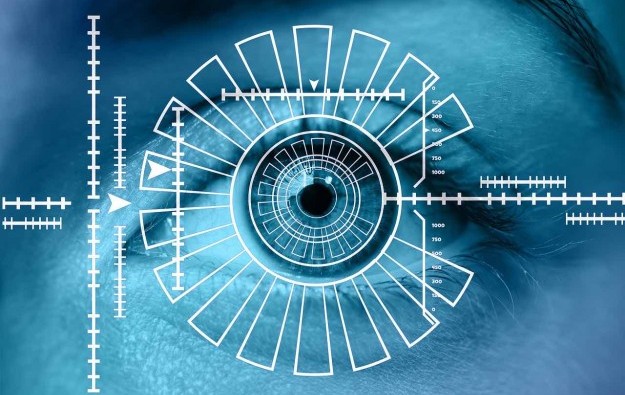Face recognition mulled for Macau casino ops: police
May 28, 2019 Newsdesk Latest News, Macau, Top of the deck

Macau’s casino operators could be required to have their in-house surveillance technology upgraded to include facial recognition. Such provision could be included in the city’s existing gaming law ahead of a fresh public tender process for local gaming rights, said a senior official of the city’s Unitary Police Service speaking at the Legislative Assembly on Monday.
Such a tender process is likely to happen in response to the approaching expiry in 2022 of the current rights, Lionel Leong Lai Tac, Secretary for Economy and Finance, said recently, indicating that conditions were likely to be attached to the fresh tender process.
Mui San Meng, assistant to the Commissioner-General of the Unitary Police Service, has linked casino surveillance technology to the revision of the city’s framework gaming law. He was speaking on Monday in the city’s Legislative Assembly, initially addressing legislators’ questions on how the Macau police were using a citywide network of surveillance cameras in public areas.
The Macau government announced late last year that it planned to install up to 1,600 video surveillance cameras across the city by 2020. Of those, 200 cameras would be equipped with facial recognition technology, according to the government.
Such public surveillance cameras could not be located inside casinos as they were “private areas,” Mr Mui told legislators on Monday. But the police would request surveillance records from the casinos, should the police need such materials to help them with their investigation work.
Several high-profile crimes were recently reported in the city’s Cotai casino district: one involved a fatal stabbing in a public area on the Cotai Strip. The other involved the alleged snatching of HKD3-million (US$382,000) worth of casino chips from a high-limit area of the Plaza Macao, a property of Sands China Ltd.
At a meeting on Friday with the city’s six casino operators, Macau’s casino regulator, the Gaming Inspection and Coordination Bureau, also known as DICJ, urged the firms to improve security measures at their venues.
On Monday Mr Mui told legislators the police would consider the possibility of recommending to the city’s government new requirements for enhanced surveillance technology inside the city’s casinos for the purpose of crime prevention, such as facial recognition. Such requirements could be introduced via the revision of the existing gaming law, Mr Mui said. The Macau government has said it would first amend the existing law ahead of a new tender process for granting fresh Macau gaming rights.
Melco Resorts and Entertainment Ltd – one of Macau’s six casino operators – has said it would install “the latest generation” of facial-recognition technology in its venues in Macau and Manila this year. The plan was mentioned in the firm’s Sustainability and Corporate Social Responsibility Report 2018, issued in April.
The Unitary Police Service has highlighted previously to legislators that police officials believed cameras equipped with facial recognition technology would help deter criminal activity in the vicinity of Macau’s casinos.
On Monday Mr Mui told legislators that the police currently aimed to have an additional 980 surveillance cameras installed throughout the city by 2023, with some of them to be operated in areas around the newly-constructed large-scale Cotai casino resorts.
Related articles
-
 Macau average 5-star 1H rate 96pct of...
Macau average 5-star 1H rate 96pct of...Jul 22, 2024
-
 3 Macau ops had back office IT hit by...
3 Macau ops had back office IT hit by...Jul 22, 2024
More news
-
 Donaco EBITDA up y-o-y to above US$4mln...
Donaco EBITDA up y-o-y to above US$4mln...Jul 26, 2024
-
 HK listed Palasino upgrades Czech...
HK listed Palasino upgrades Czech...Jul 26, 2024
Latest News
Jul 26, 2024
Border-casino operator Donaco International Ltd has achieved a 164.17-percent year-on-year increase in its latest quarterly group earnings before interest, taxation, depreciation and amortisation...Sign up to our FREE Newsletter
 (Click here for more)
(Click here for more)
Pick of the Day
”We’ve got more traction outside of Macau at the moment. But Macau’s going be a bigger focus for us”
David Punter
Regional representative at Konami Australia
Most Popular
 Sheraton brand to exit Londoner Macao, to be Londoner Grand July 25, 2024
Sheraton brand to exit Londoner Macao, to be Londoner Grand July 25, 2024  Macau regulator probes unlicensed gaming agents July 24, 2024
Macau regulator probes unlicensed gaming agents July 24, 2024  Philippines gives 20k aliens in POGOs 60 days to leave July 25, 2024
Philippines gives 20k aliens in POGOs 60 days to leave July 25, 2024  Philippines-listed DigiPlus says not affected by POGO ban July 24, 2024
Philippines-listed DigiPlus says not affected by POGO ban July 24, 2024  Sands China 2Q EBITDA down q-o-q amid low hold, renovation July 25, 2024
Sands China 2Q EBITDA down q-o-q amid low hold, renovation July 25, 2024






